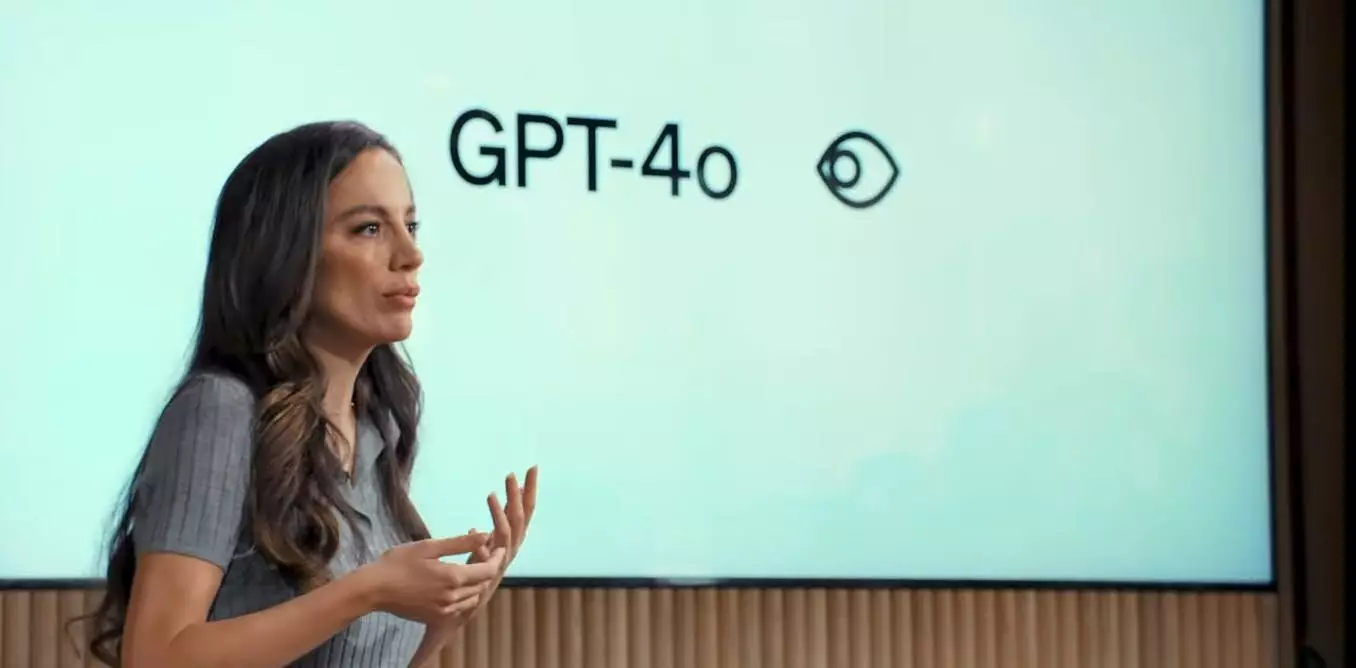The recent launch of GPT-4o by OpenAI has sparked discussions about the advancement of artificial intelligence systems, particularly in the realm of chatbot technology. This new version of the ChatGPT chatbot is touted as a significant step towards creating more natural and engaging interactions with AI. The emphasis on personality and human-like behavior in GPT-4o’s demonstrations has raised important questions about the ethical implications of developing AI with the ability to simulate emotions and engage users in a more personal way.
Comparisons between GPT-4o and the 2013 movie “Her” have been made, highlighting concerns about the potential consequences of users forming deep emotional attachments to AI systems. The movie depicts a scenario where the protagonist becomes deeply connected to an AI companion, blurring the lines between reality and virtual interactions. While GPT-4o may not be on the same level as the AI in “Her,” the risks of over-reliance, manipulation, and emotional harm are still relevant. As AI capabilities evolve to mimic human emotions and behaviors more effectively, the need for responsible development and deployment becomes increasingly crucial.
GPT-4o’s ability to work across text, audio, image, and video formats represents a significant advancement in AI technology. The integration of visual recognition and conversational responses based on environmental cues adds a new dimension to user interactions with AI. However, as AI systems become more sophisticated and immersive, the ethical implications of creating AI that can respond to human expressions, emotions, and surroundings must be carefully considered. The potential for users to develop strong emotional bonds with AI companions raises concerns about dependency and psychological well-being.
The rapid pace of improvement in AI models, like GPT-4o, raises questions about the sustainability of this trajectory and the implications for society. As AI labs compete to build larger and more sophisticated systems, the impact on users’ experiences and societal norms remains uncertain. It is essential for developers to establish frameworks that align AI tools with public values and priorities to ensure responsible and ethical use of these technologies. The availability of powerful AI systems, like GPT-4o, to a broader user base introduces new considerations regarding access, usage limits, and the potential impact on various sectors such as work and education.
The launch of GPT-4o by OpenAI represents a significant milestone in the development of conversational AI systems. While the advancements in engagement and multimodal capabilities offer exciting possibilities for user interaction, the ethical dilemmas surrounding the humanization of AI and the potential implications on users’ well-being cannot be overlooked. As AI technologies continue to evolve, it is essential to strike a balance between innovation and responsibility to ensure that AI systems like GPT-4o serve the interests of users while upholding ethical standards in their design and deployment.


Leave a Reply